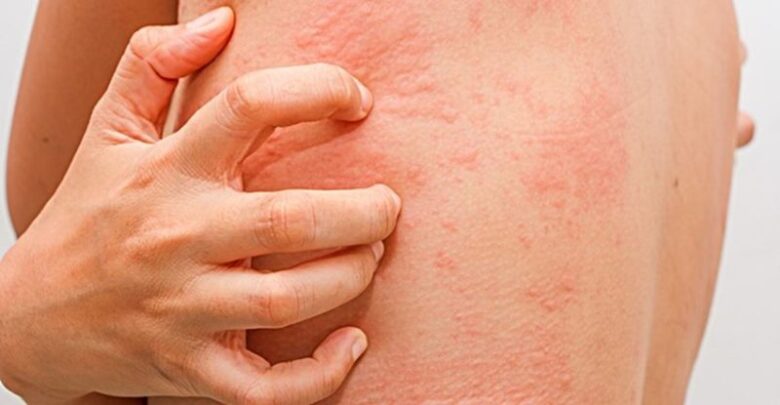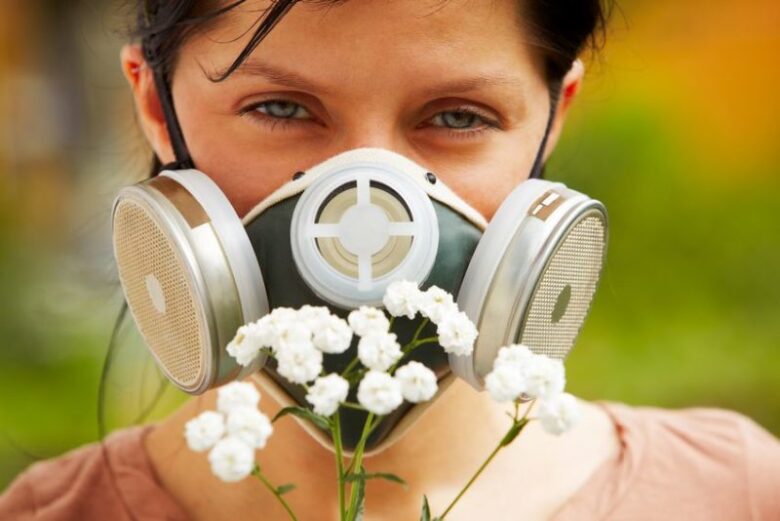Simply said, allergies are hypersensitive responses from our immune system to certain substances. These substances come into contact with our body and cause a reaction, and these substances can be pet dander, pollen, or bee venom, and they are named allergen. All kind of allergen you can find in food and drinks.
If you have some kind of allergies, your immune system reacts to the substance as if it was harmful. The most common allergens in the world are dust, pollen, and nuts, and you can sneeze, or vomit from that allergens if you smell or eat it. If you have an anaphylaxis shock you have a serious allergic reaction, and it can damage your body, and you must have an epinephrine injector just in case as a first help on the way to the hospital.

source:news-medical.net
The next process, after recognizing and remembering the allergen is sensitization when the immune system makes antibodies to attack the allergens. The process of sensitization can take a few days or several years. Sometimes allergies can be seasonal, in April and May when the pollen in the air is much higher than usual.
Symptoms

source:medgadget.com
Symptoms of allergies are inflammation and irritation and always depend on the specific type of allergen. You can also have a fever combined with some kind of irritation. If we are talking about dust and pollen symptoms are blocked nose, itchy eyes, runny nose, swollen and watery eyes, cough. Skin can itch, flake, peel, or you can have rashes on your body.
The symptoms for food allergies are vomiting, swollen tongue, tingling in the mouth, swelling of the lips, face, and throat, stomach cramps, shortness of breath, rectal bleeding, itchiness in the mouth, and diarrhea.
The symptoms for insect stings are wheezing, swelling at the site of the sting, a sudden drop of pressure, itchy skin, shortness of breath, restlessness, and hives, dizziness, cough, chest tightness, anxiety, and anaphylaxis.
The risk factors that can cause the allergies are numerous such as a family history of asthma, having asthma, not being exposed to enough sunlight, and children birth by Caesarean section. Any type of food can cause an allergy, especially eggs, fish, milk, nuts, peanuts, wheat, and shellfish. You can also be allergic to medications called penicillin, salicylates, and sulfonamides.

source:medgadget.com
You can have allergies from insect stings such as wasp, bee, mosquito, and fire ants sting. Also, bites from horseflies, blackflies, fleas, and kissing bugs can cause an allergic reaction on skin. You can also be allergic to a household chemical, and metals such as nickel, cobalt, chromium, and zinc. You can test yourself on allergies with a blood test, skin prick test, and patch test.
Treatment

source:pollen.com
When it comes to allergies the treatment, it is very simple just avoid the allergen, but it is not a solution for pollen in spring. The medications will not cure the allergy, it can only help with the condition, an antihistamine will block the action of histamine. Some of the severe allergies can be treated with the immunotherapy.

source:pollen.com
In case of trouble, it is very important to know the cause. For early symptoms, yourdoctors.online it’s always available for tips and instructions for further treatment.
How to prevent allergies

source:pollen.com
You can limit the symptoms of the allergies you cannot prevent it; you can easier avoid allergens from the food, but much harder from pollen in spring or pets. In the beginning, you should do a proper allergy test and avoid the substances that are bad for you.

